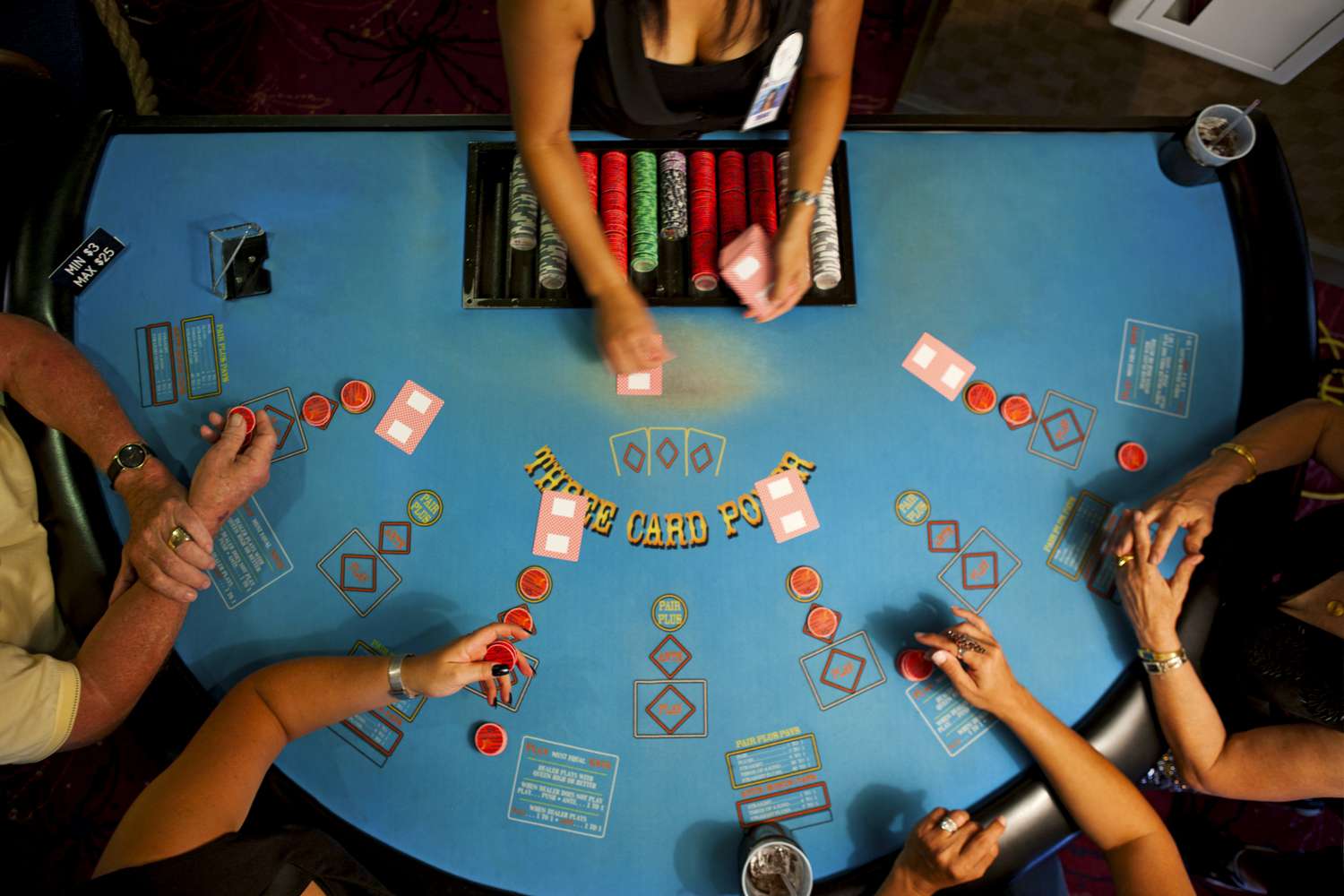
Poker is a card game in which players compete for an amount of money or chips contributed by the other players (the pot). The cards are dealt randomly, and each player makes a bet based on their prediction of the other players’ holdings. Players may also bluff in order to win the pot. If nobody calls the bet, the person with the best hand wins the pot.
There are a variety of different types of poker, but most of them share certain characteristics. For example, they all involve betting by placing chips into the pot before each round of dealing. They are all played in a circle, and each player has one or more turns to act before the dealer deals them another card. Some poker variants also have forced bets, such as the ante and blind bets, which must be made by all players before the cards are dealt.
While playing poker, it is important to learn how to read your opponents. This will help you determine whether they are bluffing or holding a strong hand. In addition, you should watch for tells such as scratching their nose or fiddling with their chips. These signs can indicate that a player is nervous, which is an indicator of weakness. However, you should not rely solely on tells to make decisions, as other factors such as position are equally important.
The best way to learn how to play poker is by practicing. Although the game of poker requires a significant amount of knowledge, it is not impossible for even a complete beginner to succeed at it. Nevertheless, it is important to keep in mind that there is always a chance of losing. However, even if you lose some hands, don’t give up; just try to improve your skills.
If you are new to the game of poker, it is a good idea to start with a small stakes. This way, you can practice without risking too much money. Then, as you become more comfortable, you can increase your stakes. However, before you start raising your stakes, it is important to remember that the higher your stakes are, the more likely you will be to lose.
Keeping your emotions under control is essential to your success at poker. If you can’t control your emotions, you will be less likely to make sound decisions and will probably lose a lot of money. In addition, it is important to avoid getting too attached to your strong hands. For example, pocket kings or queens are considered strong hands but an ace on the flop will probably spell their doom. Similarly, a flush on the board is difficult to conceal, so beginners should be wary of playing them.